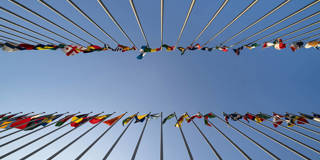As the atrocities and costs stemming from Russia’s war show, the international order certainly does not need revisionism. However, it does urgently need a “re-envisioning” of key institutions, processes, and frameworks, so that it can better uphold the liberal principles upon which it was founded.
MUNICH – While the world’s powers may not agree on much these days, most recognize that the world is at a critical juncture. US President Joe Biden’s National Security Strategy calls this the “decisive decade” in the contest for the future of the international order. Similarly, Russian President Vladimir Putin argues that the world is entering “the most dangerous, unpredictable, and at the same time most important decade since the end of World War II.” For German Chancellor Olaf Scholz, the Russian invasion marks a Zeitenwende (watershed), which means “that the world afterwards will no longer be the same as the world before.”

MUNICH – While the world’s powers may not agree on much these days, most recognize that the world is at a critical juncture. US President Joe Biden’s National Security Strategy calls this the “decisive decade” in the contest for the future of the international order. Similarly, Russian President Vladimir Putin argues that the world is entering “the most dangerous, unpredictable, and at the same time most important decade since the end of World War II.” For German Chancellor Olaf Scholz, the Russian invasion marks a Zeitenwende (watershed), which means “that the world afterwards will no longer be the same as the world before.”